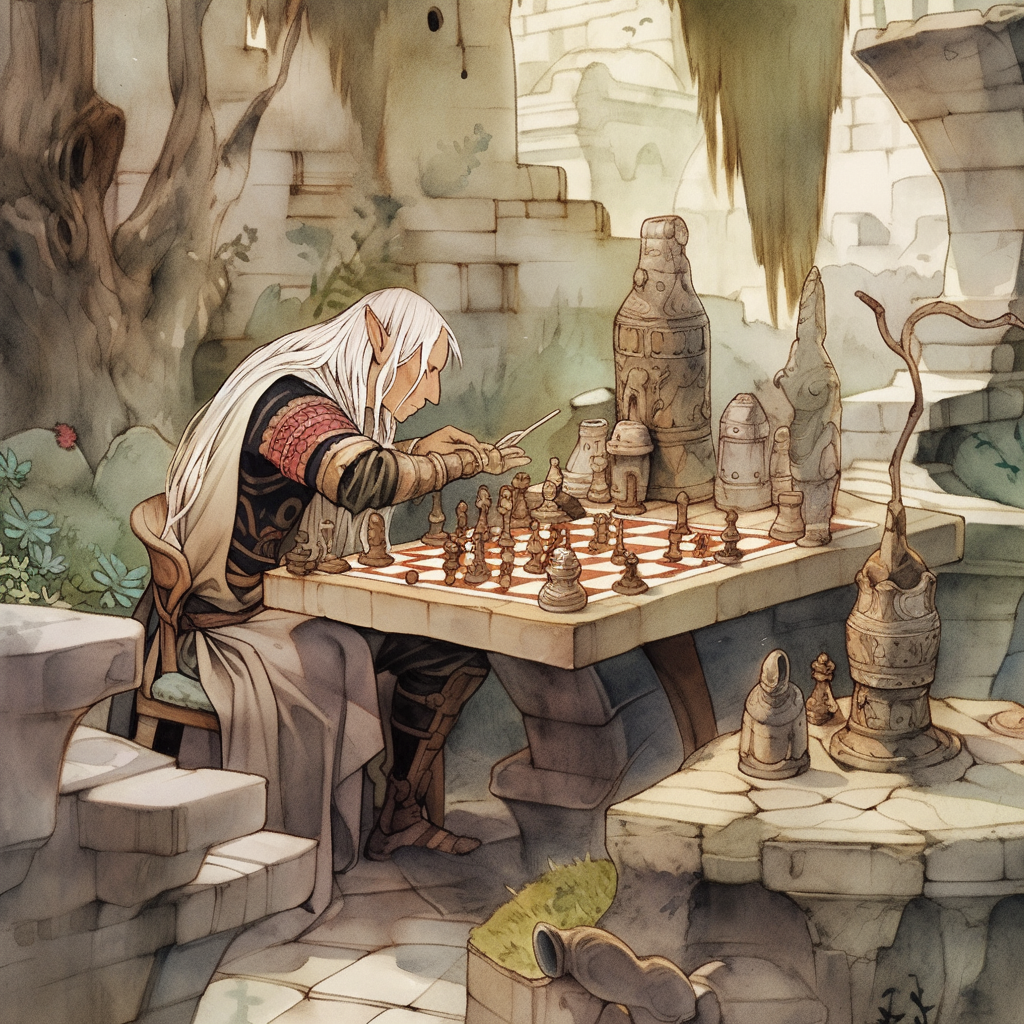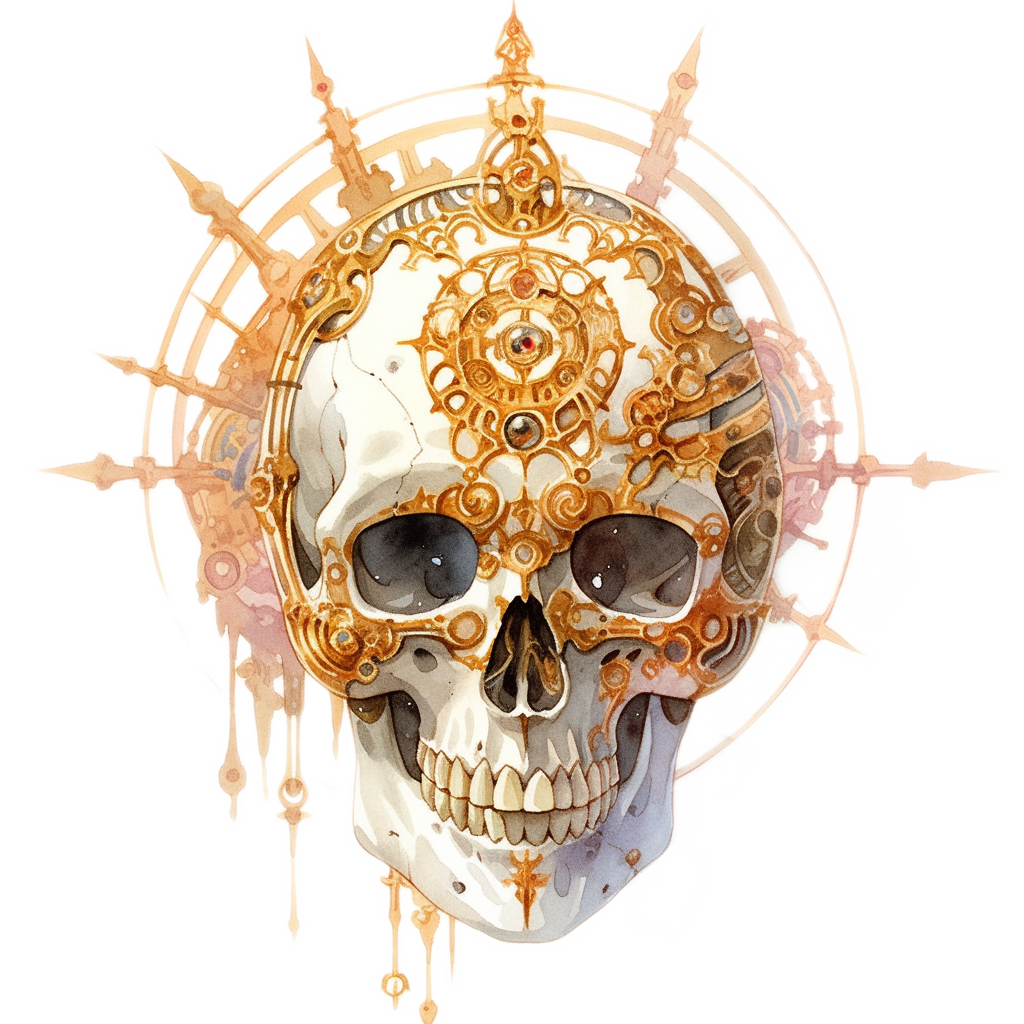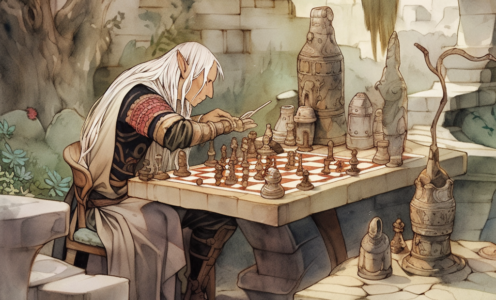GrandMaster Lorill

(Prime elf wizard of geometry [he/him] / Bureau Chief B3 of the Guvners / LN)
It’s been around for a long time, and it’s entirely likely that it’ll be around for a long time more. What? The game of chess. It’s the favourite of many a tactician or general, gambler or high-up, and it’s even said the powers themselves like to partake in a game or two. Except of course, they use real live pieces.
GrandMaster Lorill is one of the finest players of chess that the multiverse has ever seen. The chant goes that he beat Bes (the Egyptian power of luck) at a match once, and perhaps most surprising of all, he’s still alive to tell the tale. Still, that’s not why he’s mentioned here.
Lorill joined the Guvners because he loved laws and rules. He was one of those bloods who liked to know where he stood. He wanted everything to be predictable and in its proper place. Now that’s all very well when it comes to society; it’s easy to impose and enforce laws, and change ’em if they don’t seem to be working. It’s also possible to catch those who break laws and punish them, either to deter others from trying to bob the social order or merely remove the offending sod.
But society ain’t the only thing with laws. Nature’s got rules and regulations too, it seems. Being an elven exile from a forest-covered prime world meant Lorill thought a lot about nature, too. Most bashers put these immutable laws down to the powers, follow the ones the priests tell ’em to, and that’s that. Well, that wasn’t ‘that’ enough for Lorill.
See, there’s so many priests and powers that a basher must choose between. Pick any one power and his set of rules, and there’s a thousand other laws you’re breaking. Tried to follow all the laws of all the powers, and you’d only find that half of ’em contradict each other so you can’t even do that. And there’s no way of knowing which power’s got the right laws, right? (Course, if there were rules about who you could and couldn’t worship that’d be different, but there ain’t).
That convoluted logic was what led Lorill to his conclusion: the Powers don’t make up the rules of the multiverse; they’re bound by ’em too. That’s why the deities require mortal worshippers and are barred from the Prime right? That’s just two examples of laws even the powers can’t shake off.
Whoever wrote the rules, Lorill reckoned, wasn’t anywhere to be seen manipulating them any more. Out of sight, out of mind, right? That was when he hit upon the analogy with chess. Maybe, he reasoned, the multiverse could be likened to a massive chessboard. Sure, it’d been said before, but only as a metaphor when mortals wanted to describe how important the powers were. But what if it actually were true?
Chess pieces generally don’t argue with the player who’s manipulating them, and they don’t usually understand the reason they’re being moved in the way they are. Imagine it from the point of view of a black pawn. Does the poor sod realise why he’s always fighting the white army? Does he understand why he can only walk forwards, never backwards? Or why a knight moves in an “L”-shaped path? No. That don’t make him any less useful to the player though, does it?
But what if the pawn could think for himself? Would he see and know things the player couldn’t? Lorill found that when he empathised with his pieces when he played, felt their fear and adrenalin as they battled, and desperation to be victorious, that he enjoyed the game of chess all the more. And he also found he won much more frequently. Were they really alive, or did these little wooden spirits exist only in his mind, when he though about them?
Lorill began to wonder whether this discovery could hold a greater place in the multiverse.
Source: Jon Winter-Holt


